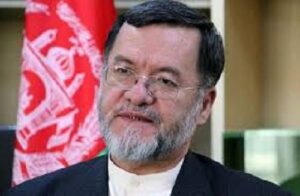
KABUL (SW) – In his quarterly report on Afghanistan, Tadamichi Yamamoto, the United Nations Secretary-General’s Special Representative for Afghanistan, expressed concerns over political challenges to the electoral process in Afghanistan.
Briefing to the United Nations Security Council, he said it is a time for important decisions in Afghanistan. He noted just over a month from now, the Afghan people are scheduled to go to the polls. “I have met many Afghans across the country who have impressed upon me their desire to exercise their right to elect their representatives. Many will face considerable risks to do that”.
He added operationally and technically, the preparations are on track. “Yet I remain very concerned that political challenges could jeopardize the tight timelines and derail the elections unless all political leaders engage constructively and peacefully to ensure that elections are held on time. Security is also a serious concern”.
About the security situation, he said President Ghani’s offer in February this year to the Taliban to engage in talks without preconditions has created unprecedented political space for peace, culminating in the temporary ceasefire in June. “The recent attack on the provincial capital of Ghazni and the frequent suicide attacks in Kabul and elsewhere remind us of the terrible toll on civilian lives and livelihoods”, he said, urging warring sides to give-up arms and join peace process.
In the first six months of 2018, this year, UNAMA recorded the highest number of civilian deaths since the Mission started to track civilian casualties. Tadamichi Yamamoto also highlighted the attacks aimed at the Shi community, journalists and aid workers.
He said together with international long-term commitments in the security field, the Geneva ministerial conference in November will signal sustained political commitment to Afghanistan, provided that the Afghan side lives up to its commitment for reforms and development.
“The Afghan Government committed to the delivery of six benchmarks. They are the holding of parliamentary elections, advancing anti-corruption; reforming the security sector; meeting IMF benchmarks; promoting private sector development; and the development of national priority programmes”.
ENDS





